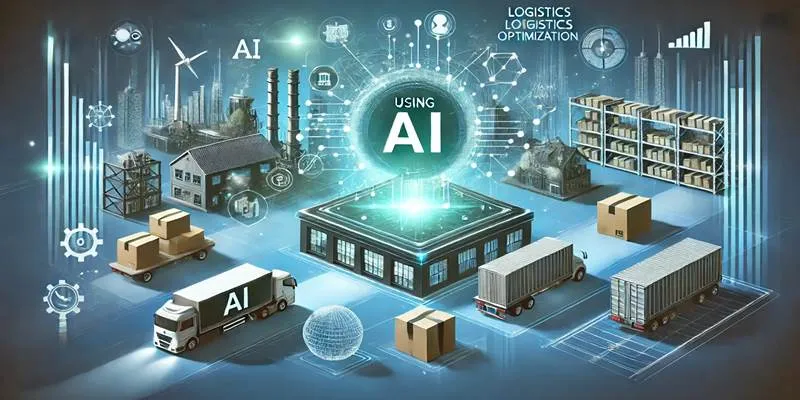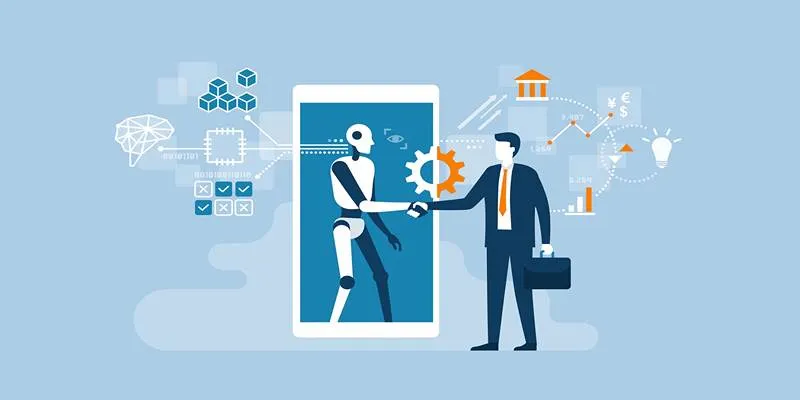There was a time when business competition relied heavily on resources or the ability to hire top talent. However, the landscape has shifted dramatically. Today, it’s not just about size or speed—it’s about intelligence. Artificial Intelligence (AI) is quietly becoming the secret weapon for successful companies. It’s not merely about machines performing human tasks faster; it’s about developing smarter systems that learn, adapt, and make autonomous decisions.
AI and competitive advantage in business are now intricately linked. Companies recognizing this relationship are not only surviving but also setting the pace for the future of competition.
The Role of AI in Creating a Competitive Edge
AI and competitive advantage in business are now interconnected. Companies employing intelligent data strategies are already reaping substantial rewards. Unlike traditional methods based on guesswork, AI relies on real-time data. It learns swiftly, adapts instantaneously, and transforms insights into action faster than humans, enabling businesses to respond better, move quicker, and maintain an edge in competitive markets.
One of AI’s most visible advantages is its impact on customer experience. Today’s customers demand more than just good service—they want to feel understood. AI tools facilitate this by predicting customer needs, personalizing offers, and automating support. This builds trust, loyalty, and promotes repeat business.
AI is also revolutionizing product development. Companies no longer need to depend on outdated market research. Instead, AI can rapidly analyze trends and customer feedback, helping businesses create more effective products ahead of the competition.
In supply chain management, AI plays a significant role. It aids in forecasting demand, managing inventory efficiently, and avoiding costly disruptions. This level of operational control provides companies the speed, accuracy, and flexibility needed to stay ahead in highly competitive industries.
Operational Efficiency and Cost Leadership
One of the clearest ways AI drives competitive advantage in business is through operational efficiency. Cost leadership has always been a powerful strategy, and with AI, companies can automate repetitive tasks, reduce human error, and accelerate processes.

AI-powered chatbots now handle customer queries 24/7, reducing the need for large customer service teams. Predictive maintenance in manufacturing helps companies avoid costly equipment breakdowns. Automated financial reporting saves hours of manual labor and minimizes errors.
Data analysis is another major area. AI can process vast amounts of data in seconds, a task that would take human teams days or weeks. This capability allows businesses to identify trends, risks, and opportunities early, providing a critical first-mover advantage.
Moreover, companies leveraging AI for operational efficiency often free up human workers for more creative and strategic roles. Instead of focusing on repetitive tasks, employees can concentrate on innovation, problem-solving, and customer engagement. This blend of automation and human talent proves to be a powerful competitive mix in many industries.
Personalization and Customer Engagement
The connection between AI and competitive advantage in business is perhaps most evident in marketing and customer engagement. Personalization is no longer optional; it’s expected. AI facilitates hyper-personalization by analyzing customer data to understand behaviors, preferences, and patterns.
Online platforms utilize AI algorithms to present users with content or products specifically tailored to them. This approach is not just about increasing sales; it’s about building deeper customer relationships. Personalized experiences create emotional connections, leading to higher customer retention rates.
Businesses effectively employing AI-driven personalization often witness an increase in customer lifetime value. This is because customers are more likely to return when their experience feels unique and tailored. AI enables companies to segment their audience with precision and deliver targeted messaging at the optimal moment.
Even offline businesses are using AI for customer engagement. Retailers, for instance, use AI-powered tools to create personalized in-store experiences, such as smart fitting rooms or tailored product recommendations based on customer profiles.
Another emerging area is predictive analytics. AI helps businesses anticipate customer needs before they arise. This proactive approach allows companies to offer products or services just as the customer realizes they need them—a powerful competitive strategy that enhances brand trust and loyalty.
Long-Term Strategic Advantage and Barriers to Entry
The relationship between AI and competitive advantage in business isn’t just about short-term gains. AI is establishing long-term strategic advantages that are difficult for competitors to overcome. This occurs for several key reasons.

Firstly, AI systems improve over time. The more data a company feeds into its AI systems, the better they become. This creates a self-reinforcing loop where early adopters of AI gain better insights, improve faster, and pull further ahead. Competitors who hesitate to adopt AI find themselves excluded from these benefits.
Secondly, integrating AI into a business requires a significant investment—not only in technology but also in data infrastructure, talent, and organizational change. Companies that have already made these investments create high barriers to entry. New competitors must not only catch up technologically but also build the necessary expertise and data ecosystems from scratch.
AI also drives innovation cycles. Businesses utilizing AI can experiment quickly, test new ideas, and adapt to market changes faster than their competitors. This agility allows them to stay ahead in rapidly evolving markets.
Finally, AI strengthens a company’s ability to scale globally. With automated systems in place, businesses can expand their reach without proportionally increasing their workforce. They can manage larger customer bases, enter new markets, and handle growing operational complexity with minimal additional costs.
This scalability, combined with continuous learning and improvement, makes AI not just a tool—but a strategic asset that shapes the future of business competition.
Conclusion
AI and competitive advantage in business are now deeply intertwined, shaping how companies operate and grow. Businesses that embrace AI are not just enhancing processes but building long-term market strength. From customer engagement to operational efficiency, AI provides a clear edge that competitors struggle to match. Companies delaying AI adoption risk falling behind in fast-changing markets. The future of business belongs to those who use AI smartly, blending technology with human creativity for sustained success and growth.
 zfn9
zfn9





















